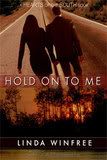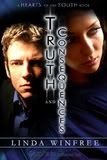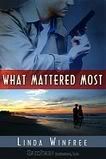Paradise Isn't Always What You Need
 I had another blog topic in mind, but when I was uploading a picture, I saw this in my folder and decided to do a 180. Gorgeous isn't it? Makes you want to drop everything and take a tropical vacation.
I had another blog topic in mind, but when I was uploading a picture, I saw this in my folder and decided to do a 180. Gorgeous isn't it? Makes you want to drop everything and take a tropical vacation.Today the thought of hitting a white sand beach and leaving all my cares behind is pretty tempting. It's raining here - no, wait, not raining, POURING. As I was watching the weather this morning, I couldn't help but frown at the seven day forecast for the Pacific Northwest: rain, rain, wind and more rain. Christmas will most likely be soggy, so will New Year's. Some people might hate that, but since I don't spend a lot of time going in and out of doors and I'm used to it, it's not a big deal for me (except when I have to walk my kid to and from school and come back looking like I stepped out of the shower...but that's another matter entirely.) Yeah, there are times I wish I lived somewhere warm 365 days per year, but I like the Pacific Northwest. The rain keeps things green, and crazy as I may be, part of me likes these blustery days.
I've been doing a lot of thinking about setting recently, trying to find that perfect backdrop for my wip. It started out in a place very similar to the picture above. I love writing about tropical destinations, partly because I love traveling to them - they're very different from the everyday backdrop that is my life. But for this story, a sandy beach didn't work. So I switched locals - still warm and sunny, but not on a beach. Still didn't work. After much thinking, I decided to rework the entire opening and moved my characters to a cold climate. No more sun. It's now snowy and wet, cold and windy. And surprise!, suddenly the story's taken off and the plot and characters are clicking in a way they weren't before.
Setting can be as important as your characters' goals, as their motivation, as the plot you're developing. How your characters react to external elements such as weather, climate and amount of daylight/darkness reveal clues about their characterization. A woman from Alaska is suddenly stuck in sunny Southern California. She's not used to the dry heat, feels like she might just burst into flames at any time. She doesn't understand how people can walk around in 99 degree temperatures as if it's nothing. The heat feels claustrophobic. She's irritated with everything. In fact, she's convinced LA might just be the first level of hell. Conflict? Sure. And we haven't even introduced the hero yet - a man who lives in LA and loves the weather. Can you see her hating him for that reason alone?
Setting sets the tone and mood for a book. A serial killer's on the loose. Does he kill on a bright, sunny beach at high noon? Or does he wait until it's dark, when clouds cover the moon, when a storm is forecast to blow in off the ocean? Which one screams dark and scary to you? Which do you buy if you're looking for a dark and gritty crime drama to read?
When you find yourself stuck, and you can't quite pinpoint just what's wrong with a scene, perhaps try changing your setting. Kick up the wind and rain, throw in a few snowflakes or a down-and-out blizzard if you want your hero and heroine stuck together for a good length of time. Experiment with light and dark, think about the mood you want for each particular scene. Sometimes the simplest answers to your scene problems can be found in your setting.
How do you decide on the setting/weather for your scenes - or for your book as a whole? What season is your current wip set in and how did you pick it?







5Comments:
I have a penchant for fictional towns in places that I know really well. Nothing bugs me more as a reader than seeing a setting that I know well misrepresented--you can TELL when an author is writing about an area they haven't visited. Alas, because I stick to places I know, there are no tropical islands in store for my characters in the near future. My first WIP was set in rural Iowa, my YA in small-town Missouri, and my current WIP is set in Portland/a fictional small town. It feels weird to be writing a non-midwestern book. I think the midwest still just feels like the most natural setting to me, and this is pushing me a bit harder.
Yay for you on finally getting a combo that works. Setting/Timing is something I'm thinking about a lot with my current WIP too. I think you're right--there needs to be a certain amount of conflict with setting and I don't feel like I'm playing that up enough yet--something I need to ruminate on a bit more.
Great thought. I know how important setting is and often try different locations for a particular scene, but for the whole story? That's one I'll have to remember!
Hm, interesting, Wavy. I write about both - places I've been, and places I want to go. With the internet (and google earth) you can see just about anyplace these days and there's research galore about most locales on the planet. My books tend to be adventure though, so my characters are often moving from place to place so I don't have to get super in-depth about a certain location very often.
I've only written one book set in the Pacific Northwest. Interestingly enough, it was the darkest of all my work and set - wouldn't you guess it - in the rainy season.
I bet you already do consider it, J. Why do you pick a certain season for your book? Why winter coats over shorts and tank tops?
We watched Lucky Number Slevin over the weekend (a good rental for those who haven't seen it). It's cold outside - fall - coat weather. Why is this important? Because the hero is taken against his will, fresh out of the shower wrapped in only a towel to meet a crime lord. The cold brings out certain comments which clue you in to his character (and smart mouth). If it had been warm/summer, you wouldn't have learned that about him. The temperature outside was also important to the dress and style of other characters in the movie. Season/temp plays a big role in stories.
I tend to write about places I know or have investigated in my books. And the time of year usually has to do with the what is happening in the area. My WIP (second spirit trilogy) is set in late summer through winter to spring - and this has to do with the movement of the Nez Perce and plays an integral part in the story. The Contemporary I'm reworking, is set in the fall and winter, with calving and feeding being an integral part of the story and dynamics. The weather and need for constant attention to the animals are part of the underlying tension in the story.
I have been known to play mother nature to make a scene work better. :)
Post a Comment
<< Home